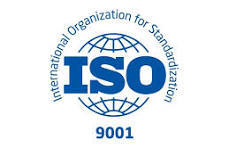So you're looking to import goods into Fiji? Great! Fiji's a beautiful island nation, and there are plenty of business opportunities to be found. But before you dive in, it's crucial to understand the import regulations, especially when it comes to Dangerous Goods (DG). Here are 5 must-know tips to ensure a smooth and successful import experience:
1. Know Your Incoterms and Costs
- Understand the Incoterms (International Commercial Terms) used in your purchase agreement. Incoterms define who is responsible for the costs and risks associated with transporting goods – from origin to Fiji. Knowing your Incoterms will help you determine freight costs.
- Be prepared with freight rates. This applies whether your shipment is FOB (Free on Board) or Ex Works (meaning you pay to get it to the port), or CIF (Cost, Insurance, and Freight – where the seller covers these costs). You'll need a freight sheet from your supplier or your own shipping agent.
2. Classify Your Goods
- Distinguish between Dangerous Goods (DG) and non-dangerous goods. DG has stricter regulations and may require additional permits.
3. Prepare Your Documentation
- If you're using a customs broker (like Movement International) to clear your shipment, they'll need specific documents from you:
- Bill of Lading (BOL): This document acts as a receipt for your goods and a contract of carriage between you and the shipper.
- Commercial Invoice: This details the transaction – items, quantities, values, etc.
- Packing List: This provides an itemized list of your goods, including their packaging details.
4. Understand Permit Requirements
- Certain goods may require import permits from Fiji's Environment Department.
Research these requirements beforehand to avoid delays.
For Dangerous Goods, obtaining the necessary permits is crucial.
5. Know the Restrictions and Value Limits
- Be aware of any restricted goods that cannot be imported into Fiji. A quick search online or contacting Fiji Customs can clarify this.
- There's a value limit for import duty exemption. Currently, goods valued at FJD2,000 or less are exempt from import duty.
Important Details Regarding Dangerous Goods (DG) in Fiji
In Fiji, the handling, importation, and transportation of Dangerous Goods (DG) are subject to stringent regulations to ensure safety and compliance with international standards. Here's a breakdown of the key points:
- Restrictions for Dangerous Goods: DG must be classified, identified, packaged, labeled, and transported according to international regulations (IMDG Code, IATA Regulations, UN system). Certain hazardous materials may be completely banned from import.
- Permits for Dangerous Goods: Obtain import permits from relevant authorities (Ministry of Economy, FRCS, NFA) and comply with transportation and storage regulations. Companies and personnel handling DG must be certified and trained.
Understanding Types of Goods and Permits
Importing and exporting goods to and from Fiji requires understanding the types of goods involved and the necessary permits for each category:
- General Goods: Everyday items typically require standard documentation and customs clearance.
- Restricted Goods:Items requiring special permission from relevant authorities (e.g., firearms, pharmaceuticals).
- Prohibited Goods:Items that cannot be imported or exported under any circumstances (e.g., explosives, hazardous waste).
- Dangerous Goods (DG): Substances posing a risk to health, safety, or the environment (e.g., flammable liquids, toxic substances).
- Perishable Goods: Items with a limited shelf life (e.g., food products, plants, flowers) requiring special handling and expedited customs procedures.
Permits for Import and Export
The specific permits required depend on the good type:
- Import Permits:
- General Goods: Standard permits from FRCS.
- Restricted Goods: Specific permits from relevant bodies (e.g., Ministry of Health).
- Dangerous Goods: Permits from NFA and compliance with international regulations.
- Perishable Goods: Permits from Ministry of Agriculture or Biosecurity Authority of Fiji.
- Export Permits: Similar requirements exist for exporting goods, with permits needed for restricted goods, dangerous goods, and perishable goods. Phytosanitary certificates may be required for agricultural exports.
Steps to Obtain Permits
- Identify Goods: Determine the classification of the goods you wish to import or export (general, restricted, dangerous, perishable).
- Check Regulations: Review the specific regulations and requirements for those goods. Relevant websites and government agencies can be found in the Regulatory Authorities section below.
- Prepare Documentation: Gather all necessary documents, including:
- Permit application forms (obtained from the relevant authority)
- Commercial invoice
- Packing list
- Safety Data Sheets (SDS) for Dangerous Goods
- Phytosanitary certificates for plants and agricultural products (obtained from Ministry of Agriculture or Biosecurity Authority of Fiji)
- Any other certificates or licenses required by the specific regulations
- Submit Applications: Apply for the required permits from the relevant authorities. This may involve submitting documents online, in person, or by mail. Contact information for these authorities can be found in the Regulatory Authorities section below.
- Compliance: Ensure compliance with all safety, health, and environmental regulations. This may involve inspections by relevant authorities.
- Customs Clearance: Once you have obtained the necessary permits and your shipment arrives in Fiji, submit all documentation to Fiji Revenue and Customs Service (FRCS) for clearance of goods.
Regulatory Authorities
- Fiji Revenue and Customs Service (FRCS): https://frcs.org.fj/ - Oversees customs clearance and collection of duties and taxes. They can also provide information on general import/export requirements.
- Biosecurity Authority of Fiji (BAF):https://www.baf.com.fj/ - Regulates the import and export of agricultural products and ensures biosecurity. They issue permits for importing plants, animals, and other regulated products.
- National Fire Authority (NFA):http://www.nfa.com.fj/ - Regulates the handling of dangerous goods. They issue import permits and conduct inspections for DG storage facilities.
- Ministry of Health:http://www.health.gov.fj/ - Regulates pharmaceuticals and medical supplies. They may issue import permits for specific medical products.
- Ministry of Agriculture:https://www.agriculture.gov.fj/ - Regulates the import and export of agricultural products. They work alongside the Biosecurity Authority of Fiji for agricultural permits.
Additional Tips
- Allow ample time for obtaining permits, especially for complex or restricted goods. The process can take several weeks or even months.
- Consider consulting a customs broker or freight forwarder who can assist with navigating the import process and ensure compliance with regulations.
- Stay updated on changes to import regulations. Government websites and regulatory authorities can provide the latest information.
By following these tips and understanding the different types of goods and permit requirements, you can ensure a smooth and successful import experience in Fiji.



